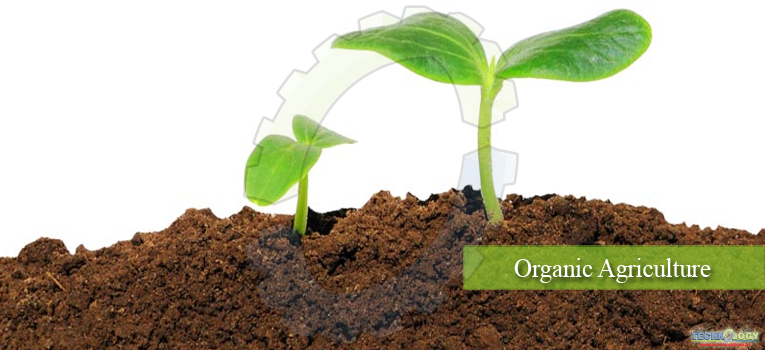Pakistan is an agricultural country with diverse agro-climatic conditions and plays an important role in its economy and development. Agriculture can be defined as process of cultivation of land for production purpose. Out of total about 70% population is related to agriculture.

Agriculture has undergone various scientific innovations like green revolution, genetic improvement and use of fertilizers and pesticides. Green revolution refers to time when agriculture changes into industrial system, more use of seeds, tractors and fertilizers.
It has been estimated that about 50% of the fertilizer leaches down into the ground water and has started showing its effects on human health in the form of diseases such as methemoglobinemia in children. Artificial fertilizers also caused the emission of greenhouse gasses such as nitrous oxide, methane and carbon dioxide.
Organic farming:
Although these advancements increased the production but simultaneously caused the degradation of environment. To overcome these challenges organic farming is the new trend that includes the use of sustainable farming practices like the use of bio fertilizers and biopesticides. Organic farming is a method of production without the use of chemical fertilizers, antibiotics and growth hormones.
Organic farming helps in maintaining environment health by reducing the level of pollution and also reduces human and animal health hazards by reducing the level of residues in the product. Organic farming can significantly increase the price of agricultural production.
There are types of organic farming; (i) Pure organic farming- in which organic manures and biopesticides are used with complete avoidance of inorganic chemicals and pesticides (ii) integrated organic farming- It involves integrated nutrients management and integrated pest management. It is the type of farming in which development of crops from natural resources having the complete nutritive value and manage to prevent the crop or plants from the pests.
In organic farming usually these techniques are being used; Crop rotation: It is the technique to grow various kinds of crops in the same area, by rotation. For example: long rooted crop is rotated by short rooted crop. Green manure: Plants that are uprooted and turned into the soil to make them act as a nutrient for the soil to increase its quality. Biological pest control: Use of living organisms to control pests with or without the use of chemicals. Compost: It is a recycled organic matter used as a fertilizer in the agricultural farms.
Biofertilizers:
Bio fertilizers consist of living cells of microbes and help the plant in nutrients uptake. These microbes are capable of nitrogen fixing and phosphate solubilizing. Biofertilizers also help to absorb macro and micro nutrients to plants. These fertilizers not only enhance the growth of the plants but also provide protection against diseases and stress
Benefits to Environment:
Organic farming helps to build healthy environment and combat serious soil and land issues. Healthy organic agriculture system can actually reduce carbon dioxide and help slow climate change. It also helps to conserve water. Organic farmers, in general, tend to spend time amending soil correctly and using mulch – both of which help conserve water.